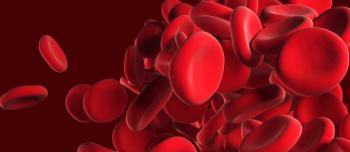In early 2021, a pair of much needed evidence-based guidelines on the diagnoses and management of von Willebrand disease (VWD) were issued by an international group of organizations eager to build consensus on VWD screening and improve the care of VWD patients globally. The American Society of Hematology, the International Society on Thrombosis and Haemostasis, the World Federation of Hemophilia, and the National Bleeding Disorders Foundation (then known as the National Hemophilia Foundation), collaborated and released joint VWD clinical practice guidelines.
A thorough, stepwise literature review was conducted to ensure that the VWD guidelines were still clinically appropriate and informed by the research described in more current peer-reviewed papers. Refreshed literature searches based on the same terms used in 2021 were employed using the medical/scientific bibliographic databases MEDLINE and Embase. To inform the diagnosis of VWD, the search was limited to studies published from 2020 to July 30, 2024, and for the management of VWD, the search was limited to studies published from 2020 to July 24, 2024. The findings were featured in a recent review article published in the journal Blood Advances.
The authors noted that VWD diagnosis searches identified 432 studies that underwent title and abstract review, with 17 undergoing full text review, while VWD management searches identified 288 studies, with 37 undergoing full text review. These studies focused on a wide range of subjects, including the therapeutic benefits of routine prophylaxis (vs. on-demand) using von Willebrand factor-containing treatments, particularly in those individuals with more severe forms of VWD.
Investigator analysis sought to determine whether these data would change the “strength or directionality” of any given recommendation or warrant the development of a whole new recommendation. The clinical co-chairs, who were part of the creation of the guidelines back in 2021, ultimately concluded that none of the reviewed studies would change the direction or strength of the existing guideline recommendations. However, they added that continued vigilance and follow-up literature reviews will be necessary if hematology clinicians are to stay current in knowledge and practice.
“Future research based on priorities outlined by the 2021 guideline panel using published definitions for clinical research in VWD will be critical to generating new data to strengthen the recommendations outlined in the current guidelines,” concluded the authors. “Periodic reassessment of the published literature will be necessary to trigger an update of the guidelines when sufficient evidence becomes available.”
The authors also noted the role of the coreVWD project, in helping to facilitate clinical trials of VWD therapies. The international coreVWD project has published a core outcome set for prophylaxis and perioperative treatment of VWD, including a special (and historically underserved) subset for women, girls, and people with the potential to menstruate.
Read the open access article “2025 ASH ISTH NBDF WFH monitoring report on the 2021 clinical guidelines on the diagnosis and management of von Willebrand disease,” to learn more the about the specific guidelines being reassessed, the results of the literature review plus the methods used to reach those results.
Citation
James PD, Flood VH, Connell NT. 2025 ASH ISTH NBDF WFH monitoring report on the 2021 clinical guidelines on the diagnosis and management of von Willebrand disease. Blood Adv. 2025 Jul 22;9(14):3553-3555. doi: 10.1182/bloodadvances.2025016512. PMID: 40273329.
Disclaimer: NBDF, through its Neil Frick Resource Center, provides periodic synopses of articles published in peer reviewed journals, the purpose of which is to highlight papers that cover a wide range of topics and relate to a broad spectrum of the inherited blood disorders community. Prior summaries have focused on topics such as shared decision making, gene therapy, health equity, and more. NBDF hopes you find this content to be informative and engaging.
Any questions about the articles featured here should be directed to the publishing journal and/or the study authors. This content is for general information only. NBDF does not give medical advice or engage in the practice of medicine. NBDF under no circumstances recommends particular treatment for specific individuals and in all cases recommends that you consult your physician or HTC before pursuing any course of treatment.





